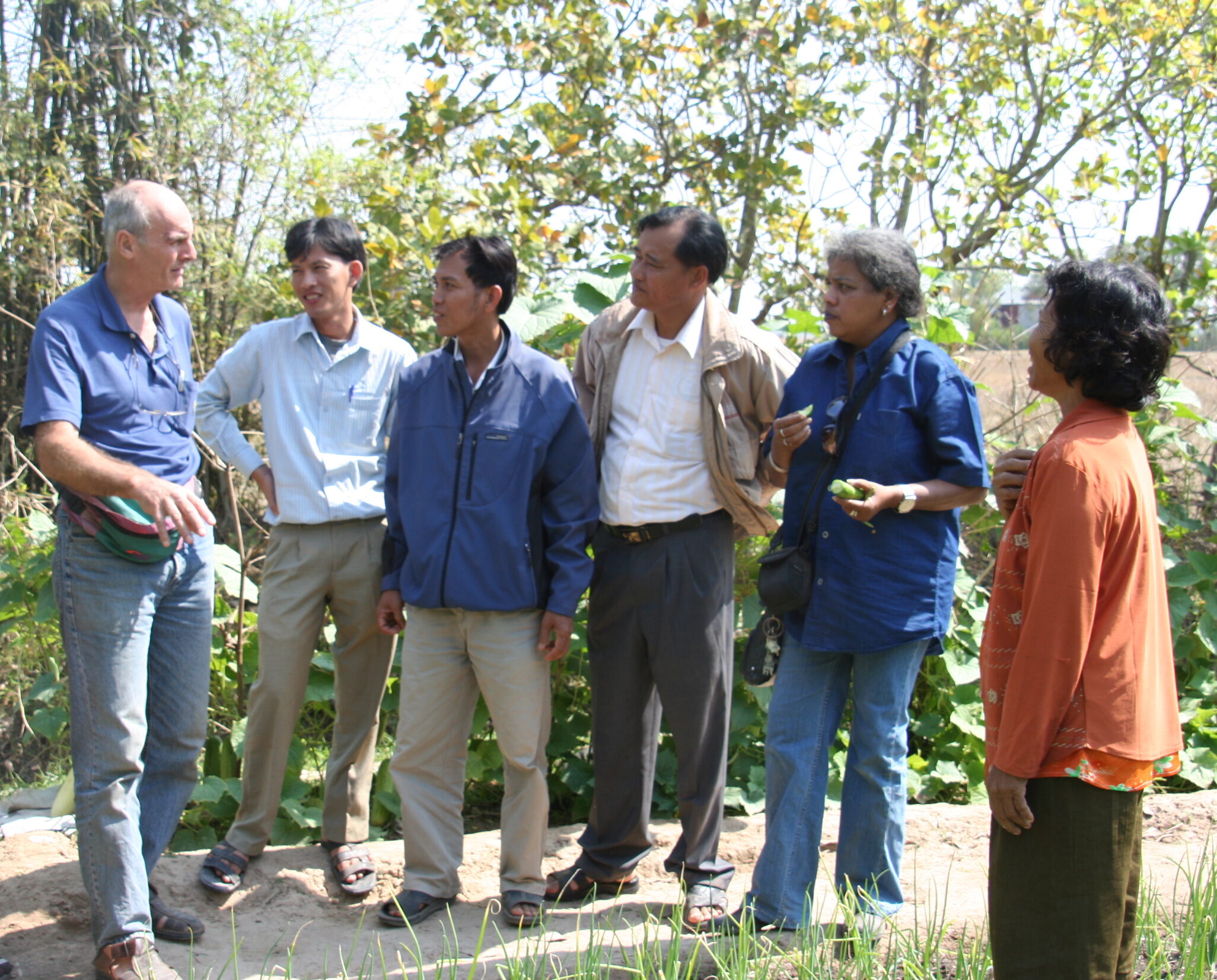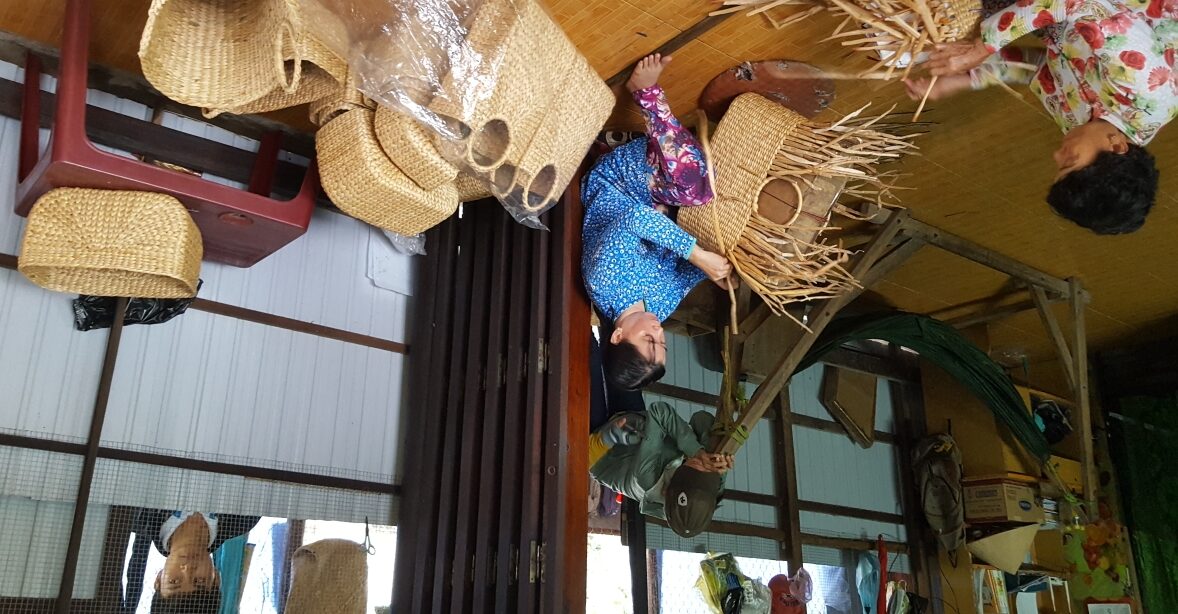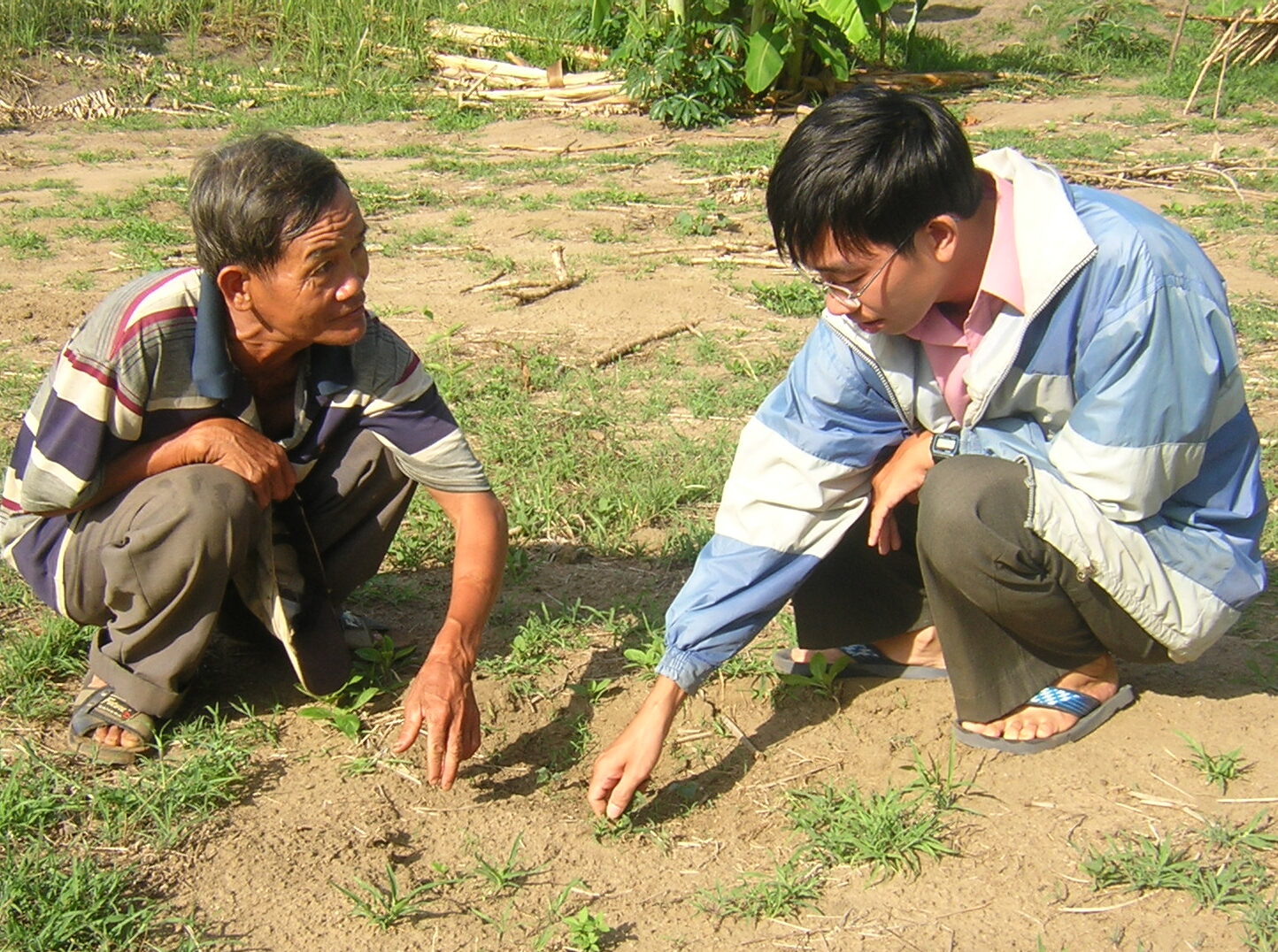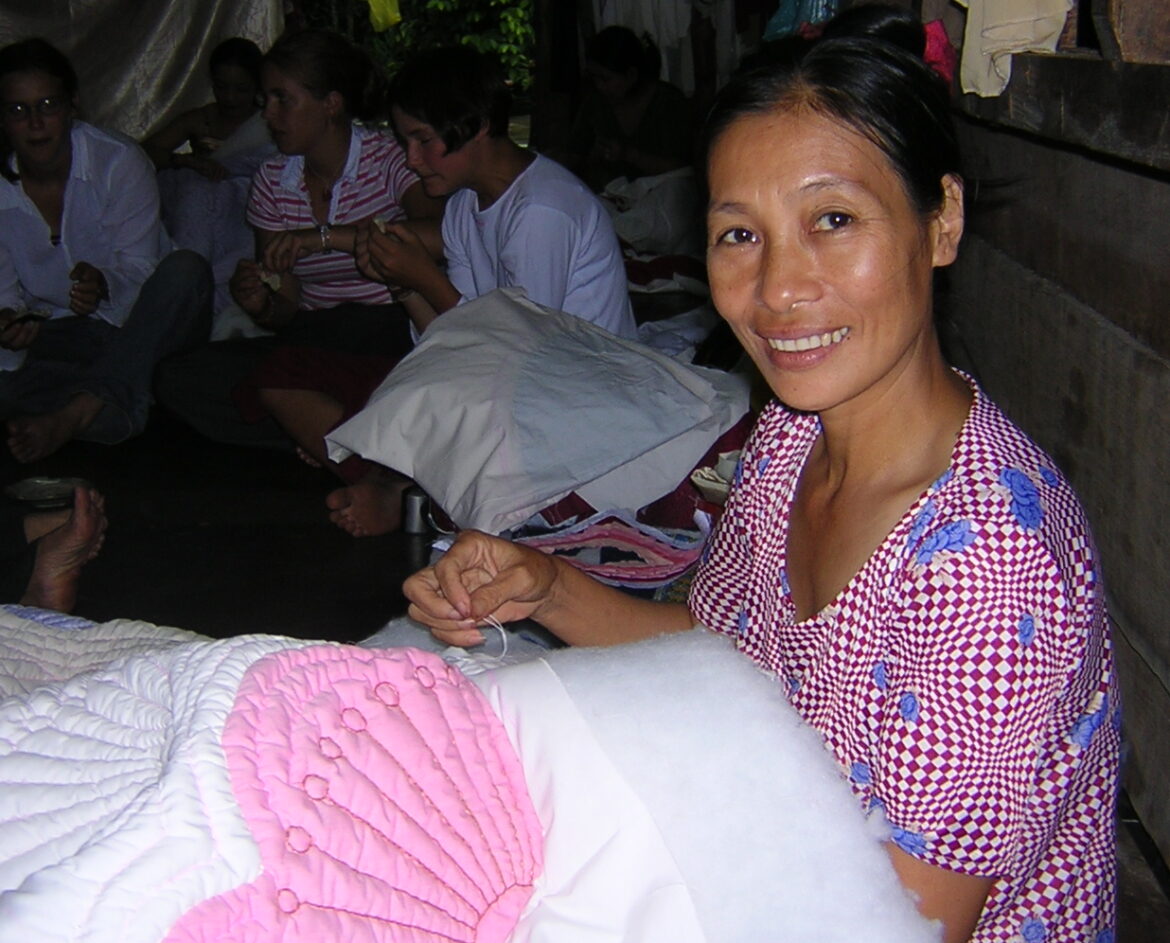By Christina Ameln, CSR | Sustainability Advisor –
“Employees salaries have been cut.”
We hear that phrase often in these troubled times of COVID-19. It always gives one pause. But it is especially disturbing when it comes from the leader of a local not-for-profit working with the most vulnerable communities in Vietnam. Less money means less impact. It is not about keeping a business afloat. It is about keeping people alive.
There are many organisations that are struggling now. While my work is often geared to the social impact efforts of corporates, I am acutely aware that the planet, people and profit are part of one equation. One pillar cannot stand alone.
Bernard Kervyn, Founder and Representative of Mekong Plus for Vietnam and Cambodia and Acting Director for social enterprise Mekong Quilts, does not stand alone, as this article will demonstrate. Nonetheless, his organizations are currently standing on ‘shaky legs’. Many of their employees gave up part of their salaries to ensure the survival of the organisations and also to share the burden with those that they help. It is tough for all.
But Bernard still believes that through ‘people’s participation’ and ensuring the voice of ‘all’ is the way to go. His commitment is inspiring.
Reducing Acute Poverty
Vietnam is considered a golden child of economic growth in Southeast Asia and has gradually been reaping the benefits of broad-based development. In many parts of Vietnam, however, reducing acute poverty is still a priority. There are many Vietnamese living below the poverty line, excluded from the benefits of economic growth. Mekong Plus is a non-profit, community development organization that operates in rural areas in the south of Vietnam and in Cambodia to reduce this poverty.
Bernard exudes an unrelenting energy to him and explains, with his slight Belgian accent, the starting point ofall of this: “I first came to Vietnam for two reasons. Professionally, I was working with a French NGO; and personally, my wife is Vietnamese. But the focus of my work changed as I found different ways to generate impact. With a small team we decided to start Mekong Plus. From the outset, it has a focus on long-term development, community engagement and working on multidisciplinary projects verses just one. We did not want to duplicate what was already being done but we wanted to do it differently. We wanted all participants to be inspired. In other words, we wanted to ensure that we were making a positive change at a very local level”.
Bernard continues to describe one of the organization’s major programs, which focuses on the poorest (who live with less than $1/day). It supports people with training and microcredit, with education and health services and with proper housing.
Other activities are providing sustainable employment for women. Together with the sister enterprises Mekong Creations and Mekong Quilts (today merged into Mekong+ Quilts), they sell products handmade by women in rural areas of Cambodia and Vietnam. At the moment the project is employing about 200 women, providing them with work close to their homes and families.
I can personally vouch for the beauty of the quilts. Many go out of their way to own one on these quilts, due to their beauty, their connection to Vietnam and the livelihoods they provide for women.
People’s Participation
Solidarity is a word that pops up a lot when speaking to Bernard. If you look up that word online, it means “unity or agreement of feeling or action, especially among individuals with a common interest; mutual support within a group”. These concepts are the foundations of Mekong Plus.
There is much discussion about the missing ingredient in many NGO efforts being the forgotten voices of the recipients of their engagement. Bernard reacts strongly to this tendency. “People’s participation is essential to ensure mutual respect. It builds on solidarity and adds to the efficiency and performance of the community impact we are working on”.
He admits that adding participant voices can slow down the process but insists that this more than compensated for by firmer commitments and engagement. And as Mekong Plus listens to their recipient voices and works on diversified projects, Bernard adds: “To be good, you have to be patient. It takes more time. You must review your activities and look for improvements more often than with programs which have one or very few activities”.
To underline the importance of participation, Bernard continues: “For me, people’s participation is important because we want to work with people”.
This also includes working closely with the local authorities. In Vietnam, this is especially important; local authorities play an integral role in all aspects of work and life, including community engagement. Bernard has witnessed this: “Silence means refusal. Therefore, it is important in Vietnam to understand the government priorities and where and how to fit in. Being outside of this model, you will fail. Fortunately, the Vietnamese authorities are pragmatic and through patient dialogue a mutual understanding for positive local impact can be reached”. Unlike many other organisations that he has met at local level over the years, his team is lives where they work, not in big cities. They are there to stay long-term.
The Frustrations
Well, the thinking long-term is the ideal. However, over the years Mekong Plus has met new challenges which impact its ability to engage and think so far ahead. “Fundraising is an unending story”, he says in frustration, “As the organization shifts to looking within Vietnam for funds, not being present in the cities is a disadvantage. Our projects are out in the countryside and it is a minimum of two-days commitment to visit our projects. Not all funders can take the time out of their schedules to see the good work we do. In addition, in Vietnam you need to secure at least 2-weeks notice for permissions for those kinds of visits. It can all get a bit complicated and while we are patient, many others might not be able to be”.
This impacts the teams directly. Bernard says: “We have 30% less staff today compared to four years ago, yet we work in 30% more villages and have launched more programs”. The results speak for themselves: Mekong Plus currently works with 6,600 households on microcredit initiatives in Vietnam & Cambodia. On average it takes four years to double their income and over 8,000 households have already succeeded in doing so. However, these results do not help their funding situation. And without funding, they cannot act – and without action, there is no impact.
Transforming the Model
Bernard knows that it is time to transform the model. The Vietnam of the time when he arrived has changed and he had been working hard with his team and the board of directors to move Mekong Plus to the next stage of its development. Then came Covid-19.

Bernard Kervyn says, “I just do not feel comfortable if other people do not enjoy the same opportunities”.
While Vietnam has been able to keep the rate of infection low, the impact is still felt. Covid-19 has constrained Mekong Plus’ organic move to an updated model. To understand Bernard, and his wish to keep organisational impact sustainable and alive, you have to hear his next words: “I just do not feel comfortable if other people do not enjoy the same opportunities”.
And with those words, this virus has put a negative spin to the work Mekong Plus is trying to do in Vietnam. As Bernard expresses: “The poor suffer more. The daily laborers have less work. Farmers have to sell their crops at a lower price. In cities, people are laid off without compensation”.
And his team have taken a cut in their salaries.
Full Engagement
Yet, his belief in solidarity and people’s participation might be the thing that pulls Mekong Plus through and makes them shine.
Bernard likes to spend time with people. He spent time with me.
And he believes that each interaction opens new eyes to the work that Mekong Plus does. In his words, “I am fascinated to see how sometimes meeting one person may have a huge impact on my life and work”.
So, for Bernard and Mekong Plus, people’s participation is not only the starting point, it is the goal. It means the full engagement of all stakeholders, from the most powerful to the most vulnerable. For Bernard and his team, it is the only path that makes sense – the only model with a chance of long-term impact – and they are determined to follow it.

Mekong Plus ‘at work’.
For more information:
Website
- Mekong Plus: http://mekongplus.org/en/bienvenue-chez-mekong-plus
- Mekong Quilts: https://mekongquilts.com/about-us/
About Mekong Plus
Mekong Plus is a non-profit, community development organization. It operates in rural areas of Southern Vietnam & Cambodia. The key principles of Mekong Plus are:
- people’s participation: nothing is done without a high participation of the people concerned
- priority of the poorest
- low cost, replicable actions.
One major program is focusing on the poorest (who live with less than $1/day); with training and microcredit, support to education and health, assisting the people for proper housing, Mekong Plus currently works with 6,600 households in Vietnam & Cambodia. On average it takes 4 years to double their income. Over 8000 households have already succeeded so. Among other activities Mekong Plus provides sustainable employment for women. Together with the sister enterprise Mekong Creations and Mekong Quilts (today merged into Mekong+ Quilts), they sell products handmade by women in rural areas of Cambodia and Vietnam. At the moment the project is employing about 200 women, providing them with work close to their homes and families. Mekong+ Quilts is owned by the 2 Vietnamese NGOs which Mekong Plus helped to set up: Thiên Chí (which operates in Bình Thuận province) and Anh Dương (which operates in Hậu Giang province).
All profits go to social development in the provinces of Vietnam and Cambodia and are being distributed by Thiện Chí & Anh Dương. The profits are returned to the villages both directly in the form of salaries, and indirectly in funding for community development projects. Examples of development projects are: subsiding latrines in remote areas to better hygiene, or the pig, – and chicken-raising programs, assisting poor farmers on how to increase their profit (training, follow-up, microfinance). The goal is community development.

All photos provided by Mekong Plus.

